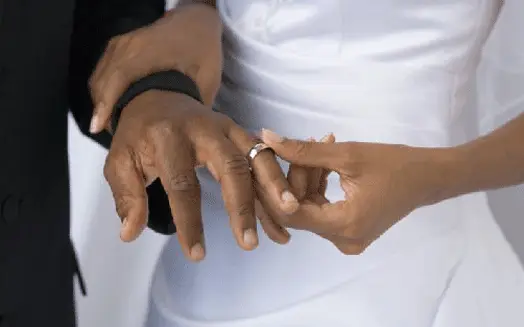Marriage is often perceived as a sacred, long-lasting commitment and a union that is meant to withstand the tests of time and trials. For centuries, marriage has been respected as an institution that binds two individuals together in love, partnership, and mutual support.
Doreen Apio, a marriage counsellor in Tororo, said that marriage in the past was a “do or die affair,” but modern times are changing the narrative. She, however, advised couples to exit once their lives are threatened or exit the union once one partner provokes the other to the extent of being tempted to retaliate physically.
“Before staying in an abusive relationship, there are things to consider: children and those you love, like your other family members. Ask yourself what will become of them if you do not survive domestic violence, emotional and psychological torture, and the abusive partner ends up in jail,” Apio advised.
She added that in modern times, the question of whether marriage is a “do or die” commitment has been the subject of much debate.
While some argue that it is an unbreakable vow, others believe that marriage should not be synonymous with sacrifice and suffering. The traditional view of marriage often emphasises its permanence, with the notion of ”till death do us part” serving as the cornerstone of this perspective.
Supporters of this viewpoint argue that the challenges and hardships encountered in marriage are all part of the journey and that true commitment means staying united through thick and thin.
They advocate for the idea that the success of a marriage requires unwavering dedication, compromise, and perseverance, even in the face of adversity.
Conversely, there is a growing school of thought that challenges the idea of marriage as an absolute, unyielding commitment.
This perspective emphasises the importance of individual well-being and fulfilment within a marriage, suggesting that staying together at all costs may not always be in the best interest of the individuals involved.
Apio’s viewpoint argues that in cases of abuse, infidelity, or irreparable differences, the well-being and happiness of the individuals should take precedence over the preservation of the marriage.
Apio further shares that the “do or die” nature of marriage also intersects with cultural and societal expectations, adding further complexity to the discussion.
She added that, in many cultures, the pressure to sustain a marriage, regardless of the circumstances, is deeply ingrained, often leading individuals to stay in marriages that may bring them more harm than good.
In her assessment, this raises important questions about the role of societal norms and expectations in shaping our understanding of marriage as a lifelong commitment.
However, Apio said that the question of whether marriage is a do-or-die commitment is deeply personal. Each individual and couple must navigate their own unique circumstances, facing diverse challenges and joys along the way.
She remarked that it is essential to acknowledge that there is no one-size-fits-all answer to this question, as each relationship is shaped by its own dynamics, complexities, and histories.
Apio further noted that the notion of marriage as a do-or-die commitment is a thought-provoking topic that warrants careful consideration and reflection. It is a deeply personal and intimate journey that requires open communication, empathy, and a shared vision for the future.
Whether viewed as an unbreakable bond or a dynamic partnership, the decision to commit to marriage and navigate its complexities is a profound and individual choice that carries with it great significance for those involved.
Much as 99% of people believe that getting married will make them happy or very happy, nobody believed being married would bring them great discontent. Marital bliss is believed by all, even those who identify as semi-religious. According to 64% of people who identify as moderately religious, marriage will make them happy. It is, however, not surprising that attitudes towards marriage can be both positive and negative depending on the individual’s experience, since people come with different opinions.
As societal attitudes continue to evolve, so too will the diverse interpretations of what it means to honour the commitment of marriage.















